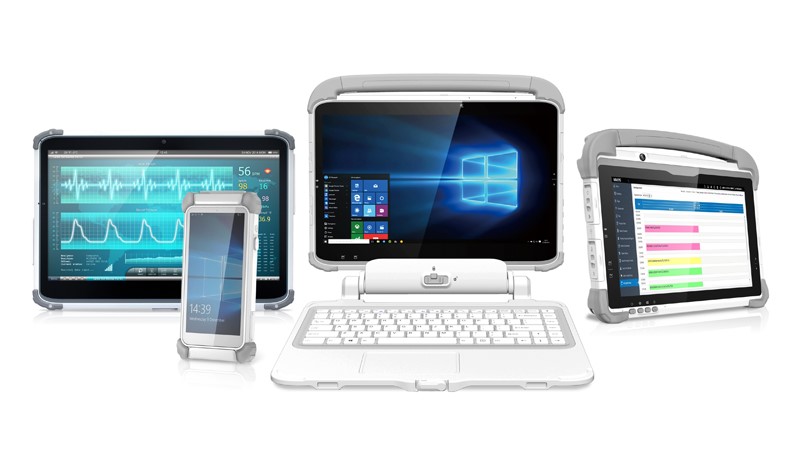
Radio Frequency Identification (RFID) is redefining accuracy and visibility in a wide variety of sectors. Retail, manufacturing, aerospace, automotive, and defense are just a few examples, but the healthcare industry may be the most important sector to profit from RFID’s particular benefits.
Greater accuracy and visibility imply faster processing and fewer errors, which means better patient safety. Hospitals and other healthcare facilities are adopting RFID to improve their service by tracking medicines, medical equipment, samples, and even patients, which provides faster recovery periods and saving lives. Medical tablets with RFID scanners enable hospital workers to work more effectively and efficiently while providing the best inpatient care.
Four Benefits of RFID in the Hospital Setting:
- Inventory management — inventory is only useful if it is readily available and used. In hospitals, labs, and entire hospital supply chains, RFID technology provides real-time traceability of every blood sample or pallet of medication, as well as real-time visibility into the inventory of the hospital. RFID also allows hospitals to track the temperature of heat-sensitive pharmaceuticals throughout the supply chain and take the required steps to ensure compliance and maintain standards.
- Patient tracking — patient tracking improves the patient experience by reducing human error. RFID tags are used for patient tracking, authentication, and automatic data collection and transfer. A patient may forget to take medication, go to a doctor’s visit, have a screening, or undergo a certain procedure. Smart patient tracking with RFID and IoT provides increased insight into each patient’s whereabouts, enhances patient safety, and aids in identifying and filling holes in internal hospital operations.
- Asset tracking — misplaced or lost inventory can cause delays in medical care; having immediate access to assets improves the entire patient experience. RFID tags are utilized in real-time inventory control, routine maintenance, and healthcare equipment management. Wheelchairs, patient beds, stairlifts solihull, and other big hospital assets are among them.
- Cost reduction – healthcare is a business unlike any other. First, patients are not typical consumers – they do not always decide when and where they will seek care, the type of care they will get, how much to pay for it or how urgently they need it. Yet the cost of care is a serious concern to them. The pressure, demand, and challenges of controlling costs while delivering quality care will continue to accelerate. And that means, for healthcare providers, efficiency is not merely good fiscal practice. It must be a critical component of their mission.
In a hospital setting, there is no “one size fits all” approach for tracking and managing equipment, assets, and patients. The goal is to pick the dependable technology for your business or organization — one that gives you the information you need when you need it, and at a price that you can afford.
Hospital staff can deliver the finest possible medical treatment to patients using DT Research medical grade tablets integrated with UHF RFID scanners that are built into the tablet.

